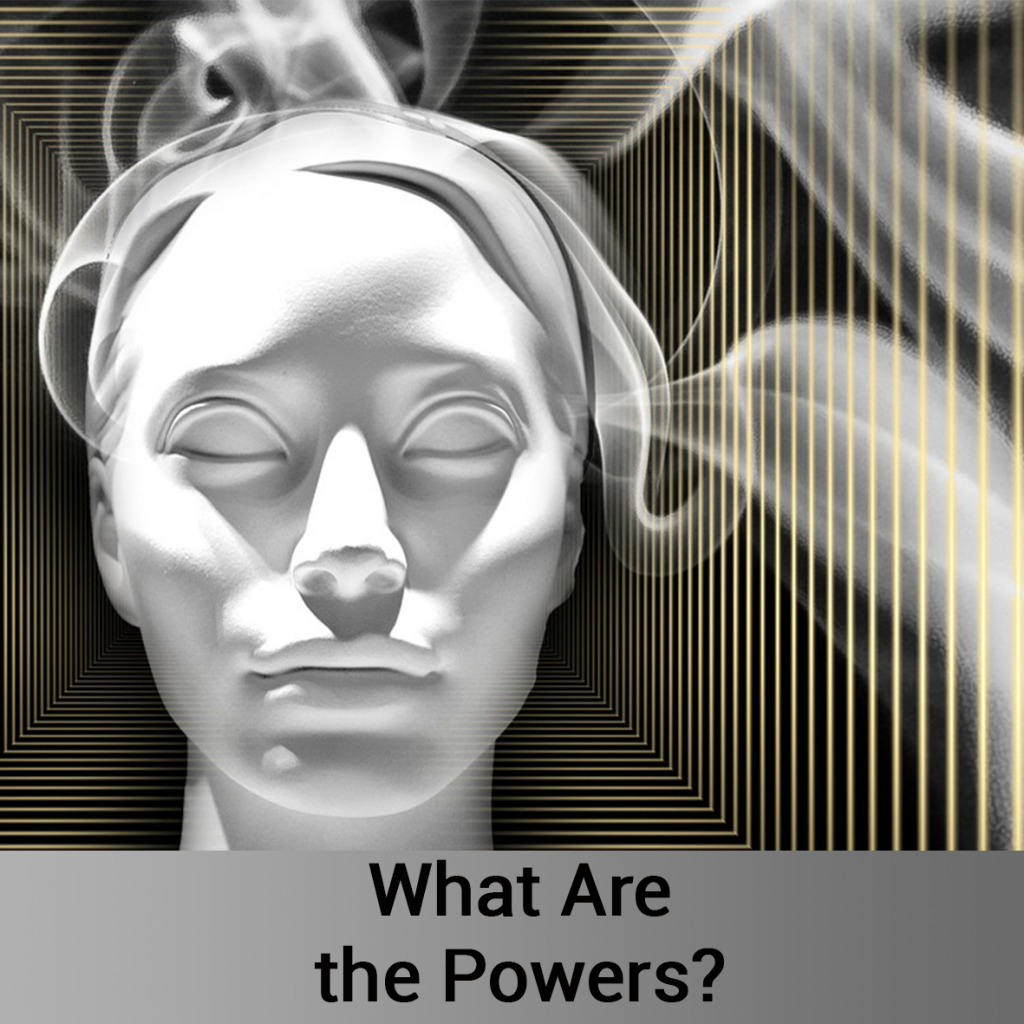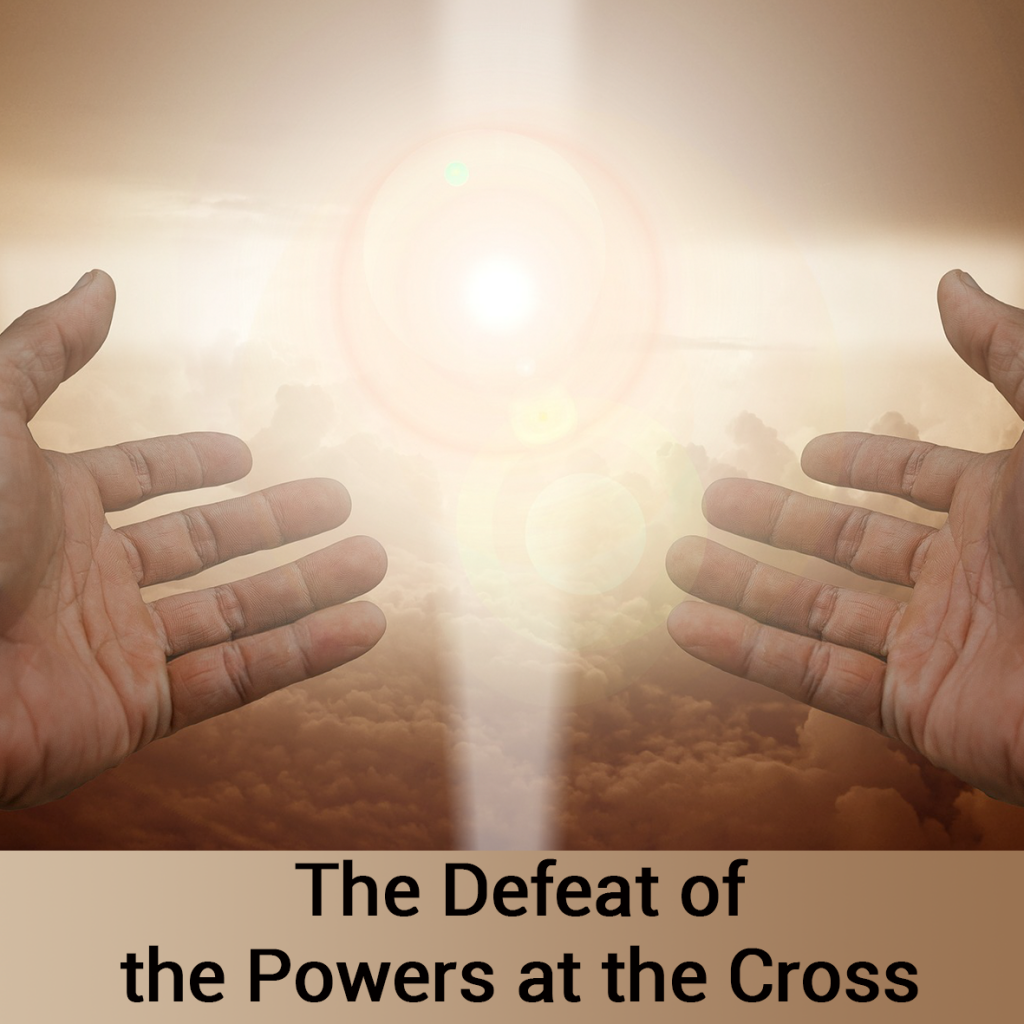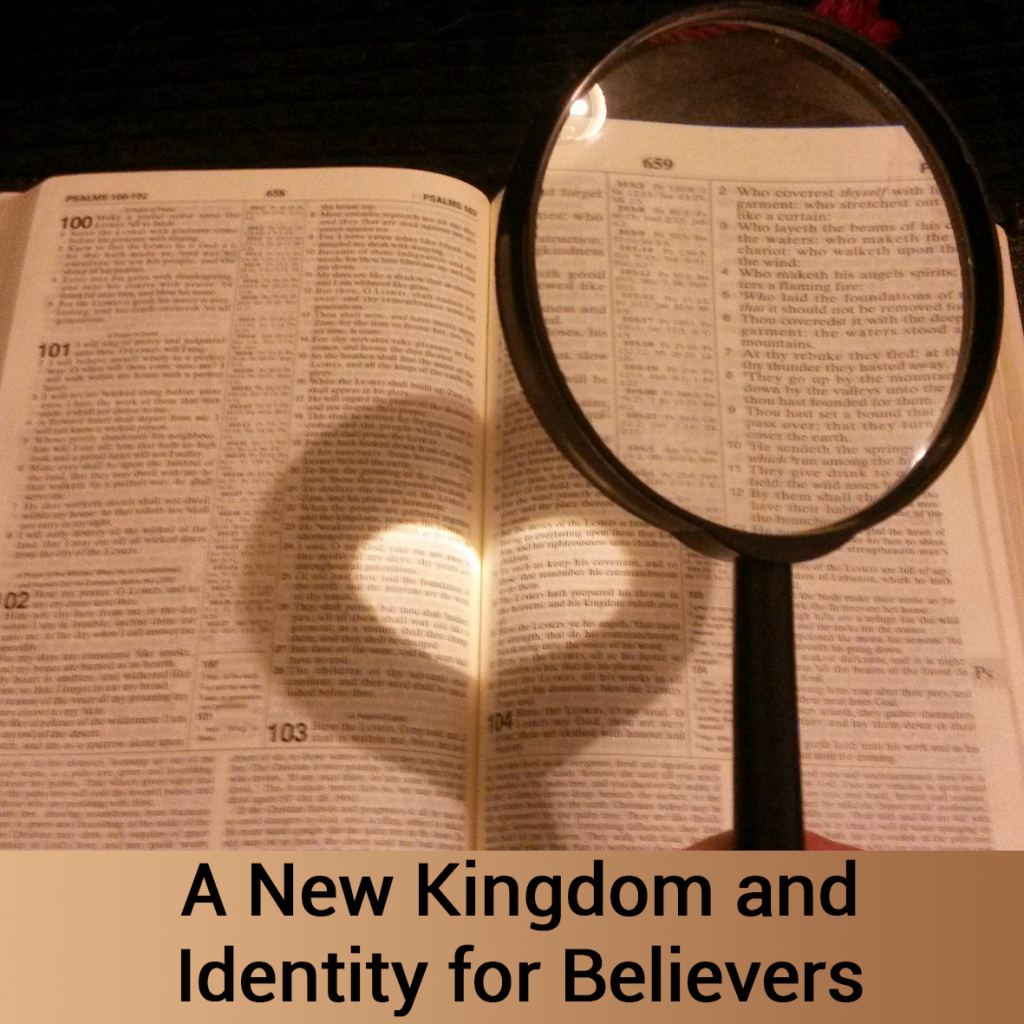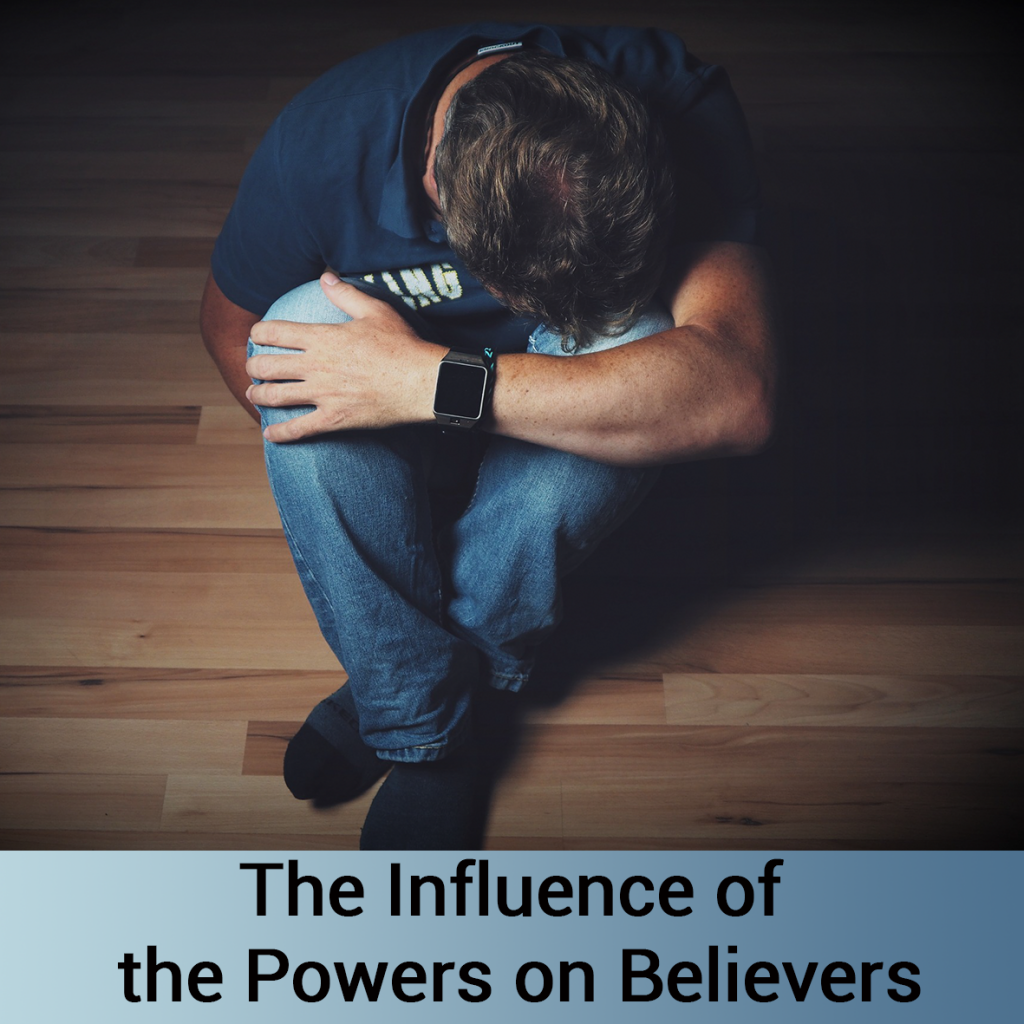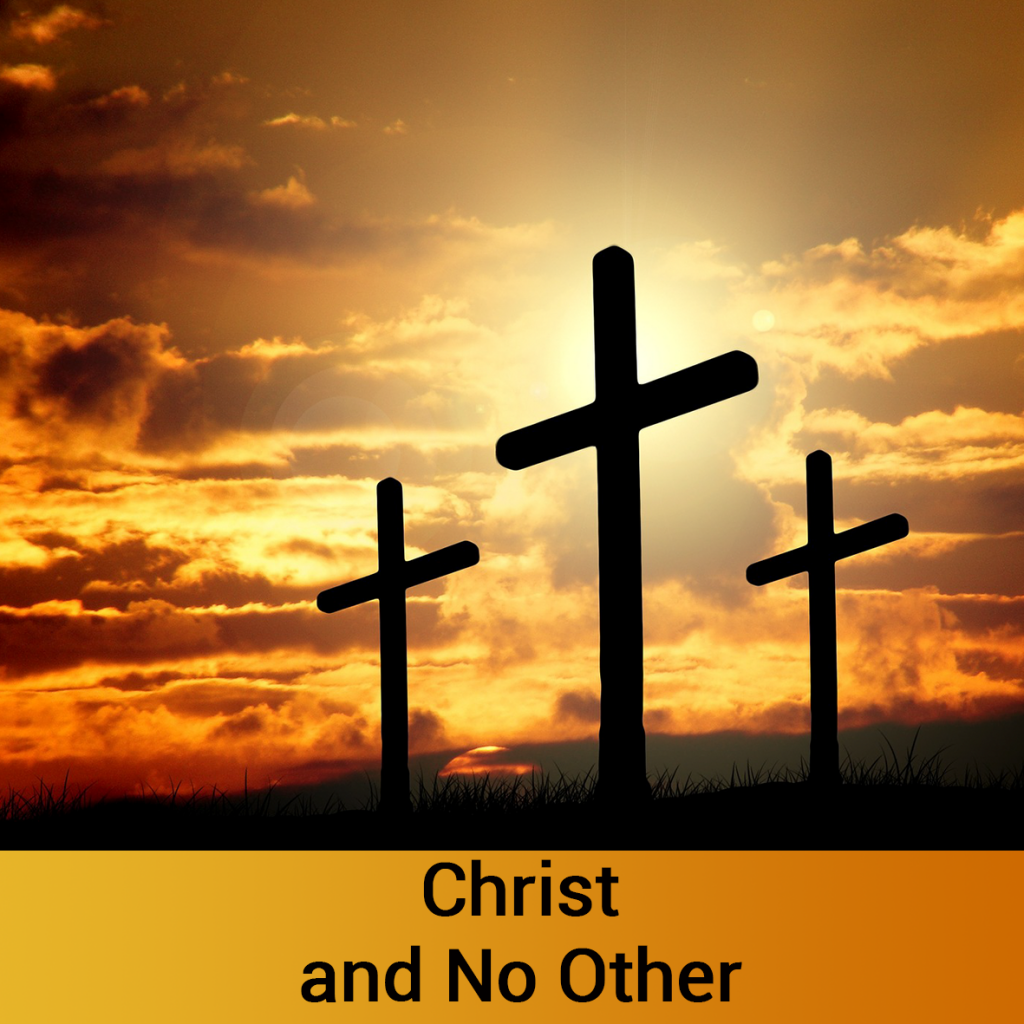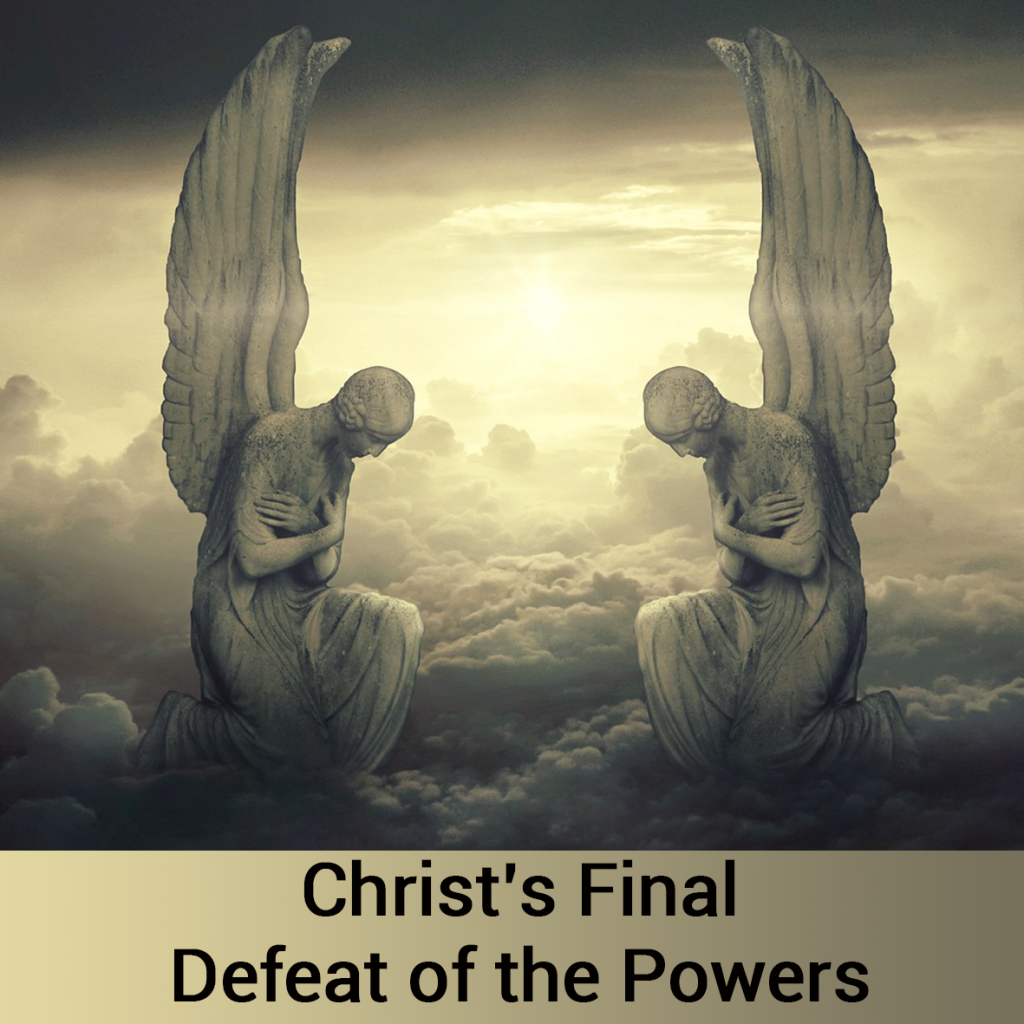Paul's Teaching on the Powers
What Are the Powers?
Since the enlightenment, some scholars try to relate scriptural statements about evil forces to modern life. They claim that the principalities and powers are identical to other forces in Paul’s letters, specifically the powers of sin, the law, flesh and death.[1] Paul did not see it this way. Paul saw them as real!
They Are Real
Paul taught his churches how to live and minister in a world where these powerful supernatural opponents exist. To understand how much of the popular belief Paul accepted and what portions he rejected it is helpful to look at the varied terminology that he uses for the powers of darkness.
The Source of Paul’s Vocabulary for the Powers
Did Paul depend primarily on the Jewish demonology of his time or on an understanding of evil spirits rooted more in pagan popular belief? Most scholars believe that Paul’s vocabulary for the powers reflects the Jewish demonology of the day since all the terms Paul uses for the powers can be found in Jewish documents of the Greco-Roman period. The Judaism of Pauls day had a highly developed angelology.[2]
“And he [God] will summon all the forces [dynameis] of the heavens, and all the holy ones above, and the forces of the Lord-the cherubim, bim, seraphim, ophanim, all the angels of governance [archai], the Elect One, and the other forces [exousiai] on earth and over the water. (1 Enoch 61:10)”
“And I saw there [in the seventh heaven] an exceptionally great light, and all the fiery armies of the great archangels, and the incorporeal forces [dynameis] and the dominions [kyriotetes] and the origins [archai] and the authorities [exousiai], the cherubim and the seraphim and the many-eyed thrones [thronoi]. (2 Enoch 20:1)”
“There with him [God] are the thrones [thronoi]) and authorities [exousiai]; there praises to God are offered eternally. (Testament of Levi 3:8)” [3]
While all three of the above texts refer to the angelic hierarchy surrounding God’s throne, the Jews believed that the same hierarchy existed in the kingdom of evil.
Although Paul used many terms known to Judaism, the non-Jew would have had no problem understanding what Paul was saying:
“While “principalities” (archai) and “authorities” (exousiai) seem to be uniquely Jewish expressions for the unseen realm, many of the other words he used were also used by Gentiles to refer to the world of spirits and invisible powers. Words like “powers” (dynameis), “dominions” ions” (kyriotetes), “thrones” (thronoi), “angels” (angeloi), “world rulers” (kosmokratores), “demons” (daimonia), “elemental spirits” (stoicheia) and “rulers” (archontes) were known and used by pagans, as evidenced in their magical and astrological texts.”[4]
The line that separated Jewish and gentile religious belief during the first century was very thin. Many Jews practiced magic and believed in astrology and borrowed concepts from the the pagan cults around them.[5] Gentiles took from Judaism too:
“This is seen most clearly in the Greek magical papyri, where in a magical recipe Yahweh, Solomon and Jewish angelic names are invoked together with Hekate, Helios, Serapis and a host of other Greek and Oriental deities. ties. It is thus very difficult to separate what is `Jewish” and what is “Hellenistic” when the topic of good and evil spirits is approached. In some ways it becomes an unnecessary question because of the spirit of the times (Zeitgeist). All believed in the existence of good and evil spirits and shared a basically stock vocabulary for referring to it.”[6]
The matter of crucial importance is what did Paul believe to be true about this realm.
What About Gnosticism As the Source?
Firstly, what is Gnosticism?
“Gnosticism is a prominent heretical movement of the 2nd-century Christian Church, partly of pre-Christian origin. Gnostic doctrine taught that the world was created and ruled by a lesser divinity, the demiurge, and that Christ was an emissary (diplomatic representative) of the remote supreme divine being, esoteric knowledge (gnosis) of whom enabled the redemption of the human spirit.”[7]
[demiurge definition – “a being responsible for the creation of the universe.
(in Platonic philosophy) the Maker or Creator of the world.
(in Gnosticism and other theological systems) a heavenly being, subordinate to the Supreme Being, that is considered to be the controller of the material world and antagonistic to all that is purely spiritual.”][8]
“Gnosticism says that humans are divine souls trapped in the ordinary physical (or material) world. They say that the world was made by an imperfect spirit.
The imperfect spirit is thought to be the same as the God of Abraham. The imperfect spirit may be seen as evil, or sometimes just not perfect but doing the best it can.
The real God who is good, is distant and not easy to know. In order to get free from the material world, a person has to get gnosis. That is the special secret knowledge given only to a few special people.
Some Gnostic groups saw Jesus as sent by the supreme being, to bring gnosis to the Earth.”[9]
There is no clear evidence supporting the existence of Gnosticism prior to the advent of Christianity. Edwin Yamauchi presents a convincing case that Gnosticism did not come into existence as a coherent system of religious thought until after AD 70, and perhaps not even until after AD 135.[10]
Many scholars are actually convinced that Gnosticism arose in Judaism due to the disappointed Messianism associated with the decisive victory of the Romans in the two Jewish wars.[11]
Although it’s origin could be second century, some of the thoughts and concepts could be first century. Gnosticism drew from a variety of religious traditions. It adopted its central concepts and ideas from the multiplicity of Greco-Roman religions, astrology, magic, Persian and Iranian religions, Judaism, and at many points, even Christianity.[12]
The terminology for angelic powers in Gnosticism probably came from the reservoir of terms for spirits, angels, demons and gods, which virtually all religious traditions shared. In Gnosticism, however, these powers were given well-defined functions as rulers of ascending planetary spheres. This appears to be the unique contribution of Gnosticism to the history of religion (influenced strongly at this point by Mithraism). Therefore, Gnosticism is not as relevant for understanding Paul’s references to the principalities, powers and authorities as some scholars suppose.[13]
They Are Part of Satan’s Kingdom
Paul’s teaching called for significant change in outlook for many of the gentile converts. They were accustomed to thinking that there were “good” and “evil” spirits. In magic they had to know the names of the helpful ones. Paul taught that there was one primary figurehead of evil, Satan, who commanded a host of “spiritual forces of wickedness.” Paul would not have accepted the distinctions made by his gentile converts between good and evil spirits of their pre-Christian experience.[14]
“All the spirits called on and revered in magic, astrology and the pagan cults were evil and demonic”[15]
Satan/the devil is “the god of this age” (2Cor4:4) and exercises a great amount of activity on the earth. John records Jesus as referring to the devil as “the prince [archon] of this world” (Jn 14:30; 16:11). His authority is not absolute, but it is also not trifling. He is hostile against God’s redemptive purpose which God has done in and through Jesus Christ. According to Paul, Satan holds unbelieving humanity captive. He “has blinded the minds of unbelievers, so that they cannot see the light of the gospel of the glory of Christ” (2Cor4:4). Paul regarded those opposing the ministry of the gospel as having fallen into a trap of the devil “who has taken them captive to do his will” [16](2Tim2:26) He also describes Satan’s activity as holding unbelievers in “slavery” (Gal4:3)
Through blinding, holding captive, enslaving and keeping people in the sphere of death, the work of Satan and his powers runs counter at every point to the loving, reconciling and life-giving purpose of God in Christ. Satan has a multiplicity of schemes to defraud and take advantage of people even after they become Christians (2Cor2:11; Eph6:11). Although his character is dark and evil, he often presents himself in a very positive light to further his deceitful work (2Cor11:14)
They Are Involved in the World Religions
1Cor8 – in principle Paul agreed that an idol has no real existence and therefore eating meat sacrificed to it wasn’t really a problem, BUT some weaker believers were being led astray and actually going back to the pagan religion as a result of this issue, hence Paul argues the case for cutting all ties completely with food available at the pagan temples. Paul also acknowledges that there are real powers behind these gods (vs5) and later, in 1Cor10:20-21 he contends that the images represent demons and not true divinities. They were not to be thought of on the same level as God. For the weaker believers these gods were still quite real in their conscience and awareness. Their intellectual conviction that there was only one God had not been fully assimilated emotionally.[17] The convictions of their hearts had not caught up with their cognitive understanding.
The fact that these pagan gods really are “nothing” does not make them any less dangerous. Sacrifices offered to pagan gods are offered to demons, not to God (1Cor10:19-20). In Paul’s mind there are indeed supernatural beings associated with pagan idolatry – the powers of darkness![18] Demons are the recipients of the sacrifice and it results in a fellowship with demons. We ought to keep our fellowship for Christ alone.
God is made jealous and angered by the foreign gods (Deut 32:16-17)
A second-century BC Jewish document comments on the sons of Noah who began making graven images etc. It says that cruel spirits assisted them and the prince of these demons, Mastema, acted forcefully to do all of this. He sent other spirits to those who were set under his hand to practice all error and sin and all transgression, to destroy, to cause to perish and to pour blood out upon the earth. (Jubilees 11:4-5)[19]
The Testament of Judah 23:1 says that demons of deceit are being followed by those who practice witchcraft and idolatries and follow mediums and soothsayers. The Testament of Naphtali 3:1 speaks of gentiles who have changed their order, forsaken the Lord and followed sticks and stones because they have followed spirits of deceit. Romans 1:23 speaks of the worship of God being exchanged for a lie. The glory of God is exchanged for images made to look like mortal man, birds, animals and reptiles. Satan and his powers of darkness use these non-Christian religions to hold humanity in bondage.[20]
Baptism and observance of the Lord’s table did not guarantee immunity from the treacherous activity of the demonic powers. Neither were the people of Israel immune to the deadly effects of idolatry even though they had been symbolically “baptized” and had consumed “spiritual food” and “spiritual drink” (1Cor10:1-12)[21]
A former idolater, by returning to former ways will be captured by them all the more and thus eventually suffer eternal loss.[22]
Demons animate idolatry.
By extension the operative principle for us today is that all the various non-Christian religions represent a special manifestation of the work of the powers of darkness to deceive people and turn their attention away from the one true God.
What Paul Does Not Say.
- An explanation of the angelic rebellion and fall.
Ezekiel 28
Isaiah 14
Many traditions say that both of the above go beyond mere descriptions of the historical circumstances of those particular kings and impart to us insight into the rebellion of Satan and a host of angels. Much of Judaism during the Greco-Roman period pointed to Genesis 6 and the account of the “sons of God” as the origin of the powers of darkness (eg 1 Enoch 6-11). Paul does not endorse nor allude to any tradition regarding the origin of evil spirits. He simply assumes the presence of evil supernatural beings in the world who are hostile to God and to the church. The wiles of the devil in actual life throws the issue of origins into the background.
- The names of the angelic powers: Much of the Jewish literature which was current at the time of Paul (especially apocalyptic literature) focused on identifying the powers by name. Apart from a single reference to Satan as Belial (2 Cor 6:15), Paul has no concern to name the spirits. For him this would likely be a worthless undertaking, since they would all respond to Christ’s authority.
III. The order within the angelic hierarchy.
“The Jewish Testament of Adam lists the angelic powers according to their various orders-from the lowest to the highest-giving their respective functions. The Testament gives the lowest order as the angels, followed by archangels, archons, authorities, powers, dominions, and then the highest orders, thrones, seraphim and cherubim.”[23]
Paul’s varied references to the powers shows no concern at all with the respective ranks or orders. Paul’s concern was primarily functional. He wanted his churches to know that there are powerful angelic beings who assail Christians, and they should be prepared to respond to them.
- The activities of certain demons and how they are thwarted: Paul never alluded to the need for invoking angels or possessing special knowledge about the function of the various evil spirits. Paul pointed to the Lord Jesus Christ alone as the source of the believers’ authority over the powers of darkness.
- Territories ruled by evil angels: Paul himself never connected the powers of darkness with any specific country or territory. For instance, he never entreated God to thwart the angelic prince over Rome or to bind the demonic ruler over Corinth. He normally spoke in comprehensive terms when he referred to the powers. He lumped them all together and spoke of Christ’s supremacy or the believer’s authority over them. It is likely that, for Paul, it wasn’t so important that the believer identify precisely the evil angel wielding the supreme authority over a territory, but that the believer recognize that there are indeed powerful demonic emissaries who attack the church and hinder its mission and that they can be overcome only through reliance on the power of God.
[1] Clinton E. Arnold. Powers of Darkness: Principalities & Powers in Paul’s Letters (Kindle Locations 983). Kindle Edition.
[2] Ibid 996
[3] Ibid 998-1002
[4] Ibid 1006-1009
[5] Ibid 1006
[6] Ibid 1011-1014
[7] Google Dictionary. https://www.google.com/search?q=define+gnosticism&rlz=1C1CHZL_enZA748ZA748&oq=define+Gnosticism&aqs=chrome.0.0l6.4354j0j4&sourceid=chrome&ie=UTF-8 (visited 7 August, 2019)
[8] Google Dictionary. https://www.google.com/search?rlz=1C1CHZL_enZA748ZA748&ei=FNdKXZfGC5qX1fAPxZC_gA8&q=define+demiurge&oq=define+demiurge&gs_l=psy-ab.12..0j0i22i30l4.47359.50020..51826…0.0..2.1395.5269.2-1j7-4……0….1j2..gws-wiz…….0i71j35i39i70i249j35i39j0i67j0i131.Pl9MuGCPzwc&ved= (visited 7 August, 2019)
[9] Wikipedia. https://simple.wikipedia.org/wiki/Gnosticism (Accessed 7 August 2019)
[10] Ibid 1019
[11] Ibid 1019
[12] Ibid 1024
[13] Ibid 1024
[14] Ibid 1029
[15] Ibid 1033
[16] Ibid 1033–1039
[17] Ibid 1058
[18] Ibid 1064
[19] Ibid 1079
[20] Ibid 1083
[21] Ibid 1088
[22] Ibid 1099
[23] Ibid 1116-1118
The Defeat of the Powers at the Cross
The cross of Christ is the pivotal point of salvation history. This is true in two ways, Christ made satisfaction for sin through his blood and Christ won a decisive victory over the evil powers.
The Ultimate Sovereignty of the Creator
When Christ and the church are represented throughout the NT as being in conflict with the powers, these powers are never seen as forces that are free and independent of God’s absolute sovereignty. God is the Father and the source of all life. In Colossians 1:15-20 the Creator’s functions are attributed to Christ upon whom “God was pleased to have all of his fullness dwell.” Christ is praised for creating the universe and sustaining it as well as moving it toward a time of consummation that will be characterized by universal reconciliation. Paul can legitimately extol Christ’s sovereignty over the powers because Christ created them all. For Paul God is the God who has always retained control and remains in control while continuing to unfold his purpose in history. He “works out everything in conformity with the purpose of his will” (Eph 1:11). Neither the stars nor the astral spirits – commonly believed to control human destiny – can countermand God’s plans. Only the electing and redeeming God, who chose a people to be his own before the creation of the world, has control over history and human destiny.[1]
The Attempt to Ruin God’s Redemptive Plan (1 Corinthians 2:6-8)
Paul writes: We do, however, speak a message of wisdom among the mature, but not the wisdom of this age or of the rulers (archontes) of this age, who are coming to nothing. No, we speak of God’s secret wisdom, a wisdom that has been hidden and that God destined for our glory before time began. None of the rulers of this age understood stood it, for if they had, they would not have crucified the Lord of glory. (1 Cor 2:6-8)[2]
This passage gives us three important insights into our understanding of the powers:
- Their knowledge of God’s plan is limited
- The demonic rulers are facing impending doom – Paul asserts that the rulers of this age “are coming to nothing” (NIV), “are passing away” (NASB), “are declining to their end” (NEB). Paul here employed a strong word (katargeo), which is generally used to mean “render powerless,” “abolish” and “wipe out.”2 Ironically, this is true of the powers because the cross of Christ marked their defeat. Although they may experience temporary victories in their ongoing hostility against the church, their ultimate doom is certain. Paul uses the same word (katarge5) later in his letter to the Corinthians, when he says all the hostile powers must be destroyed before “he hands over the kingdom to God the Father” (1 Cor 15:24). The demonic rulers are also described by Paul as being part “of this age.” Following traditional Jewish eschatology, Paul conceived of two ages, this age and the one to come. The powers are a pan of this present evil age (see Gal 1:4) from which God is rescuing his people. The demise of the powers is all the more certain because the Second Coming of Christ will mark the end of “this age.” All the fullness of life in the age to come will then be experienced-and without contending with the devilish influence of the demonic rulers.[3]
- The demonic rulers are intimately involved in the affairs of life. Although humans nailed Christ to the cross, Paul points to demonic responsibility. Paul could not have been thinking only about the humans’ responsibility such as Annas, Caiaphas and Pilate. Paul intended that we think of demonic rulers:
- In Ephesians 2:2, for example, Paul described Satan as “the ruler (archon] of the kingdom of the air.” The word was part of his vocab for referring to an evil spirit-being[4]
- It is more natural to interpret the demonic rulers as being “wiped out” (katargeo) than the human rulers. 1Cor15:24 uses the same word to refer to Christ destroying the powers of darkness before he hands the kingdom over to God the Father. The same word is used to refer to Christ’s slaying of the satanically inspired “lawless one” during the time of great distress at the end (2Thess2:8). The word is never used for the ultimate doom of unbelieving humanity.
- This interpretation best explains Paul’s argument in this passage. Not even the angelic powers can understand the secret wisdom of God.
- Paul probably used the word “ruler” for evil angels because it was part of the wide array of terminology for evil spirits in Jewish tradition at the time. This was also a title for Satan, so it carries the connotation of exceptional power and authority in the hierarchy of evil spirit-beings.
- The word “ruler” [archon] was also part of the early Christian vocabulary for the satanic. The “prince [archon] of this world” is one of John’s most common expressions for the devil.
Christ’s Victory over the Powers (Colossians 2:15)
Nowhere else in the New Testament is Christ’s victory over the powers of darkness given fuller expression than in Colossians 2:15: “And having disarmed the powers and authorities, he made a public spectacle of them, triumphing over them by the cross.” The death and resurrection of Christ marks the beginning of their demise. Christ won a once-and-for-all victory over the powers with eternal repercussions. The details of Paul’s statements are worth examining.[5]
- God disarmed the powers
Christ’s death and resurrection deprived the evil forces of any effective power against himself or the members of his body, the church. Whereas, prior to the cross the powers could maintain a kingdom and hold humanity in slavery, Christ’s work changed that. Christ is able to redeem people from captivity and bring them freedom because he has disarmed the powers. He made a satisfaction for sin. Thus, the powers lost their chief mechanism for holding people in bondage.
“You were dead in your transgressions and sins … when you followed … the ruler of the kingdom of the air” (Eph 2:1-2). God’s wrath was propitiated, and the offense of sin was forever taken from his sight. Christ’s work gave believing humanity access to God through which they could receive a new nature and be filled with his divine enabling power. The resurrection demonstrated that even death could not be victorious over Christ. The strongest weapon in Satan’s arsenal was not sufficient for conquering Christ. Neither will it prove sufficient for destroying his people.[6]
- God publicly exposed the powers
The hostile powers, after their brief apparent triumph, had now become aware of a divine wisdom they had never dreamed of. They saw the Church arising as the result of Christ’s death, and giving effect to what they could now perceive to have been the hidden purpose of God.’ Having thought they could destroy Christ, the powers were astonished to find Christ rising from the dead and assuming the position of “head” over a new body of people he was bringing into union with himself. The devices of the powers could now be seen as futile by all. In Galatians 4:9, Paul certainly had adequate reason to describe the “elemental spirits” as “weak” and “miserable.”[7]
Paul uses the word for “make an example of”/ “expose” / “disgrace” or “mock.” It seems to have been a word commonly used for the exposing and disgracing of anyone who committed adultery. This usage is seen in its only other appearance ance in the New Testament in Matthew 1:19, which describes the situation where Joseph did not want to “disgrace” Mary; that is, to “expose” her publicly for her supposed adultery. One ancient writer mentions a Cyprian law, “according to which an adulteress had to cut her hair and was subjected to contempt by the community.”[8]
- God paraded the powers in a triumphal procession
Christ’s death and resurrection thus represents his decisive victory over the powers of darkness. This truth is strongly attested elsewhere in the New Testament. The writer to the Hebrews also brings this fact out by highlighting the leader of the powers, Satan: “He [Christ] too shared in their humanity so that by his death he might destroy him who holds the power of death-that is, the devil” (Heb 2:14). In one of his letters, John affirms: “The reason the Son of God appeared was to destroy the devil’s work” (1 Jn 3:8).[9]
The Supremacy of Christ (Ephesians 1:15-23)
“15 For this reason, because I have heard of your faith in the Lord Jesus and your love[a] toward all the saints, 16 I do not cease to give thanks for you, remembering you in my prayers, 17 that the God of our Lord Jesus Christ, the Father of glory, may give you a spirit of wisdom and of revelation in the knowledge of him, 18 having the eyes of your hearts enlightened, that you may know what is the hope to which he has called you, what are the riches of his glorious inheritance in the saints, 19 and what is the immeasurable greatness of his power in us who believe, according to the working of his great might 20 which he accomplished in Christ when he raised him from the dead and made him sit at his right hand in the heavenly places, 21 far above all rule and authority and power and dominion, and above every name that is named, not only in this age but also in that which is to come; 22 and he has put all things under his feet and has made him the head over all things for the church, 23 which is his body, the fulness of him who fills all in all.”
The divine exaltation of Jesus Christ soon followed his resurrection. God installed Jesus to a position of power “at his right hand in the heavenly realms, far above all rule, authority, power, and dominion” (Eph 1:20-21). There is not one evil angelic prince who can be named as a threat to Christ’s dominion.[10]
The phrase “every title [literally, `name’] that can be given” would have communicated in an especially powerful way to people who had formerly been involved in magical practices-like many of the Christians tians at Ephesus.
Paul also asserts, “And God placed all things under his feet.” Everything, thing, including the powers of darkness, now comes under Christ’s authority. Paul viewed this as a Messianic fulfilment of Psalm 8:6 (“You made him ruler over the works of your hands; you put everything thing under his feet”) and Psalm 110:1 (“The LORD says to my Lord: `Sit at my right hand until I make your enemies a footstool for your feet.’ “). Just as humanity was given dominion over the physical creation tion to rule over it (Ps 8:6), Christ has now been given mastery over the entire realm of spirits and angels by virtue of his resurrection and exaltation. Christ’s dominion, however, will extend far beyond the spirit realm to include all of creation. In this context Paul stressed Christ’s immediate mastery over the angelic world.[11]
Paul gave further explanation of Christ’s universal dominion, saying ing God has appointed Christ to be the ruling “head” over everything for the church (Eph 1:22-23). Although the powers still do not willingly ingly recognize his “headship” and superiority and still continue in their hostile activities, nevertheless, they will ultimately have to answer to Christ and recognize him as their ruler and the Lord (Eph 1:10; Phil 2:10).[12]
This passage would have been particularly appropriate and comforting to Christians in western Asia Minor who feared the ongoing hostility of the powers. In the same way in can encourage and inspire us today.
The Powers as Christ’s Captives (Ephesians 4:8-10)
Ephesians 4:8-10 Revised Standard Version (RSV)
“8 Therefore it is said, “When he ascended on high he led a host of captives, and he gave gifts to men.” 9 (In saying, “He ascended,” what does it mean but that he had also descended into the lower parts of the earth? 10 He who descended is he who also ascended far above all the heavens, that he might fill all things.)”
Paul was quoting Psalm 68:18
(a) to extend his case for the supremacy of Christ over the powers of darkness.
(b) to introduce a discussion about the gifted people Christ furnishes to the church.
This passage gives further evidence for the universality of Christ’s lordship.
“In his explanation of the psalm Paul spoke of Christ descending to the lower depths of the earth” (TEV) prior to his ascension (Eph 4:9-10). 10). This description probably refers to Christ’s descent to the underworld, world, given fuller expression in I Peter 3:18-22,’1 where he likely proclaimed his victory over all the fallen angels and spirits and warned them of their impending doom.[13]
This passage would also have been particularly meaningful to people living in the first century who deeply feared the underworld and worshiped underworld deities.[14]
In this passage Christ is shown to be more powerful than all whom the underworld represents.
“In Philippians 2:10, where Christ’s universal supremacy is praised, Paul expresses the same thought: “Therefore God exalted him to the highest place and gave him the name that is above every name, that at the name of Jesus every knee should bow, in heaven and on earth and under the earth, and every tongue confess that Jesus Christ is Lord, to the glory of God the Father” (Phil 2:9-11; italics mine).”[15]
ALTHOUGH HE WAS SOVEREIGN BECAUSE HE WAS CREATOR, CHRIST STILL NEEDED TO DEFEAT THOSE REBELLIOUS POWERS. THE CROSS, RESURRECTION AND EXALTATION OF CHRIST ARE THE BASIS FOR HIS VICTORY OVER THE POWERS. THAT IS OUR BASIS FOR VICTORY TOO.
[1] Clinton E. Arnold. Powers of Darkness: Principalities & Powers in Paul’s Letters (Kindle Locations 1131-1139). Kindle Edition
[2] Ibid, 1147-1150
[3] Ibid, 1154-1155
[4] Ibid, 1167-1168
[5] Ibid, 1190-1192
[6] Ibid, 1197-1200
[7] Ibid, 1210-1214
[8] Ibid, 1203-1206
[9] Ibid, 1219-1222
[10] Ibid, 1226-1227
[11] Ibid, 1230-1236
[12] Ibid, 1239-1241
[13] Ibid, 1246-1248
[14] Ibid, 1246
[15] Ibid, 1251-1254
A New Kingdom and Identity for Believers
A New Kingdom and Identity for Believers[1]
On the one hand, Christians are in progress and not perfect, but on the other hand, in the presence of our justifying God Christians are perfect.
- Brand new person, member of a new kingdom
- Divinely rescued from slavery in a kingdom controlled by evil supernatural forces
- A new identity
- Rescued from the Kingdom of Darkness
Westerners struggle to accept that all who are not believers are in bondage to the hostile powers (it’s not only those in occult activities who are slaves to the dominion of darkness). Although conversion may only “feel” like a personal decision, an invisible rescue has occurred in the unseen realm.
2 Corinthians 6:14-15 distinguishes the leaders of each dominion as Christ (leader of the one kingdom) and Belial (leader of the other kingdom).
Christ is our redemption (1 Corinthians 1:30) because of his work on the cross but he also destroyed the power of the influence of the evil dominion (Colossians 2:14-15). This passage describes Satan as the authority of darkness. His rulership over a domain is highlighted. This domain includes the powers that Paul mentions in the rest of Colossians such as powers, authorities, elemental spirits, thrones, etc. His captives would also be included (every person who is not a member of Christ’s kingdom).
Paul’s concept of redemption bridges the gap between two outcomes of Christ’s death on the cross. We are both delivered from Satan’s kingdom and we also receive forgiveness of sin.
“For he has rescued us from the dominion of darkness and brought us into the kingdom of the Son he loves, in whom we have redemption, the forgiveness of sins” Colossians 1:13
Deliverance from slavery is definitely at the heart of Paul’s concept of “redemption.” Behind Colossians 1:13 lies the exodus event. The same word for “rescue/deliver” is used. Christ has rescued believers from Satan and his powers of evil in the same way that God delivered Israel from their bondage in Egypt.
BELOW ARE A FEW CONCEPTS OF THE MEANING OF NEW LIFE IN CHRIST:
- “In Christ” (repeated 200 times in Paul’s writings)
In Christ means “new creation” (2 Corinthians 5:17) – there is the death of the old creation dominated by adverse spiritual forces and there is the emergence of a new creation in which everything is Christ-centered.
It was very important to Paul that believers see themselves as closely linked to their victorious Lord. Self is maintained but there is the added unity and relationship with an empowering and directing leader.
“in Christ” also reflects an initiation into a new age. Christ’s death and resurrection inaugurated “the age to come” (consisting of life, righteousness, peace and joy). Contrasted with this is that which is represented by Adam, which is life in this present age. Through Adam came sin, condemnation and death (Rom 5:12-14). Paul can therefore say, “For as in Adam all die, so in Christ all will be made alive” (1 Corinthians 15:22).
- Joined to Christ and to One Another
The “new identity” is linked to the concept of “the body of Christ.” The Holy Spirit joins the new believer to the body of Christ upon conversion (1 Corinthians 12:13).
Interdependence is stressed by Paul because God has uniquely endowed each person with a particular ability to minister to others (1 Corinthians 12:1-30). Christ is the head (Ephesians 1:22-23, Col 1:18) and therefore empowers the body and enables it to fulfill its mission in spite of intense demonic hostility. The image of the bride expresses the same thought.
- Dead, resurrected, exalted
The believers’ authority over the evil powers is rooted in their identification with the resurrection and exaltation of Christ.
The powers rule over a domain of death. Those in Christ have been given life. Baptism symbolizes this (Romans 6:4).
The true and final and absolute freedom that we gain in Christ still needs to be appropriated as long as we live in this present age in corruptible bodies. This is why it was important to Paul to convince the believers that they are dead to sin (Romans 6:11). Sin no longer needs to have a compelling force over us and we can refuse to engage in it.
The resurrection power is far above every rank in the order of the powers of darkness (Ephesians 1:19-22). This exalted Christology is applied directly to the believer in Ephesians 2:6 As Christ does, so too believers have a position of superiority and authority over the devil’s forces, and the resurrection power is available to believers.
- Filled – Endowed with Power and authority
Paul found it necessary to pray that the Ephesians would be “filled to the measure of all the fullness of God” (Ephesians 3:19). Belief and prayer are important factors in appropriating these resources. This fullness overlaps closely with the work of the Holy Spirit who fills every believer.
Paul related this fullness with Christs supremacy to the demonic powers in order to convince the Colossians that they have Christ’s power and authority over the demonic realm. We have been given fullness in Christ who is the head over every power and authority (Col 2:10).
Christ is endowed with all of God’s fullness (Col 1:19; 2:9).
- The Spirit and the Gifts
Possession of the Spirit is the basis for the new identity of the believer (1 Corinthians 2:10-14). This is the only spirit-being whom Paul advocates should have place in a believer’s life. He is the Spirit of God (Romans 8:14) and of Christ (Romans 8:9) and knows the deep things of God (1 Corinthians 2:10-11). He is sent from God and reveals God to us (2 Corinthians 2:12)
He is different from the spirits of the Hellenistic religions and from the spirits in magic. In popular magic a supernatural spirit acted as a divine assistant and was summoned to accomplish the will of the recipient.
The Holy Spirit only accomplishes the will and purpose of God. He seeks to promote holiness among the people that He indwells (Galatians 5:16-26) and empowers Christians to “put to death the misdeeds of the body.” (Romans 8:13). He also establishes the unity among believers (1 Corinthians 12:13). Each believer is uniquely endowed to help other Christians grow in their Christian lives (1 Corinthians 12).
Ephesians 5:18-19 holds the encouragement to continually be filled more fully with the Holy Spirit
- Secure and Protected
Paul attested to the security of all who are in Christ in the face of every conceivable hostile power – forever protected, forever cherished, not separated by anything (Romans 8:38-39).
Satan lies and deceives. We are not immune to the demonic realm. That is why we need to study scripture and know who we are in Christ. According to Paul, only the one true God gives “protection” that extends as far as the rule of all the powers of darkness, including Satan himself.
We need to ask the Holy Spirit to open our hearts to these truths (Ephesians 1:17-18)
Once we understand the truth about our identity in Christ then we need to align our lives with this reality. The Spirit’s fullness must be appropriated on a day-to-day basis. THEN WE CAN TALK SPIRITUAL WARFARE!!!
[1] Clinton E. Arnold. Powers of Darkness: Principalities & Powers in Paul’s Letters (Kindle Location 1256-1418 summarized and synthesized). Kindle Edition.
The Influence of the Power on Believers
more information coming by the end of 2023
Christ and No Other
more information coming by the end of 2023
Spiritual Warfare
more information coming by the end of 2023
Christ's Final Defeat of the Powers
more information to come…
